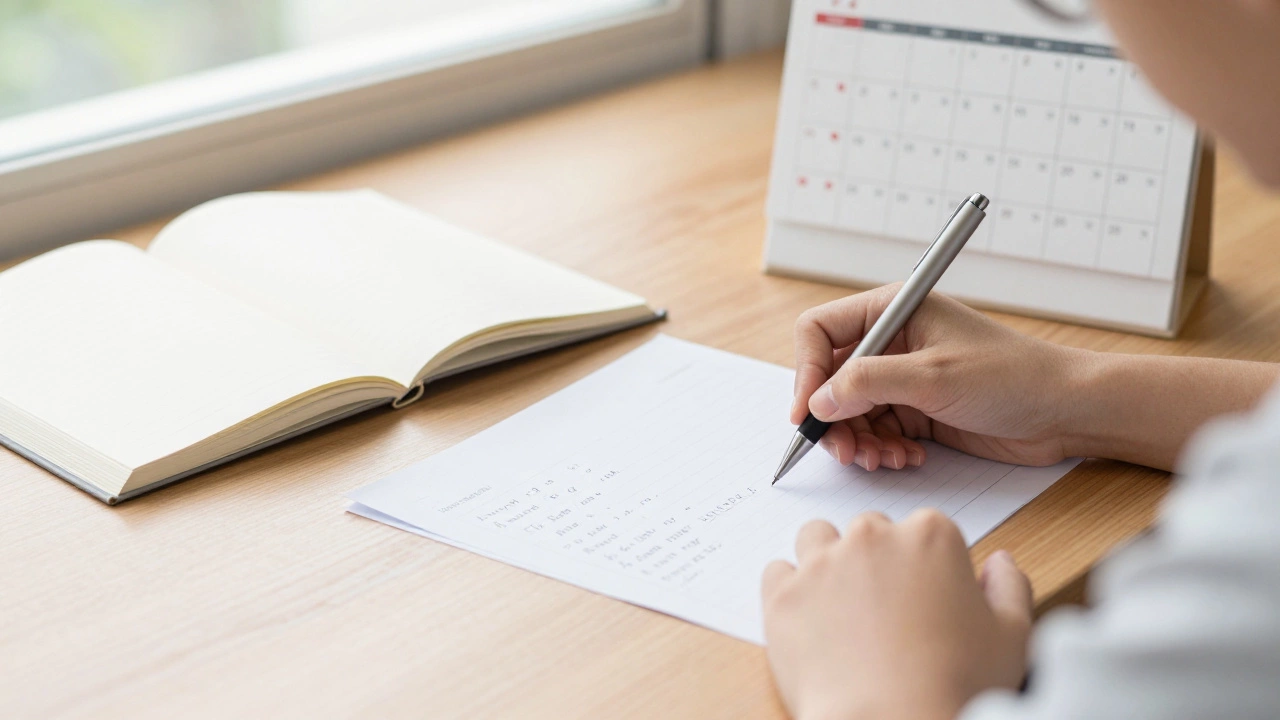Exam Preparation Made Simple: Tips, Tools, and What to Study
Got an exam coming up and feel the pressure? You’re not alone. A solid plan, the right habits, and a few smart tricks can turn stress into confidence. Below you’ll find easy steps you can put into action today, plus a quick look at the most useful articles on our site.
Build a Study Plan That Works
Start by breaking the syllabus into bite‑size chunks. List every topic, then rank them by how often they appear in past papers and how comfortable you feel with each one. Allocate more time to the tough spots and lighter sessions to the easy bits. A simple spreadsheet or a free app like Google Calendar does the trick – just set daily goals and stick to them.
Next, schedule short, focused study blocks. Research shows 25‑minute sessions with a 5‑minute break (the Pomodoro method) keep your brain sharp. During breaks, move around, stretch, or grab a glass of water. Avoid scrolling on your phone; the pause should reset your focus, not distract you.
Don’t forget to test yourself. After each block, write a quick summary or do a few practice questions. This active recall cements the material far better than rereading notes. If you’re stuck, our "Foods and Drinks to Avoid Before Exams" article gives quick nutrition tips to keep your brain firing.
Boost Your Brain on Test Day
Sleep is non‑negotiable. Aim for 7–8 hours the night before; a rested brain processes information faster and manages anxiety better. On the day, eat a balanced breakfast – think whole grains, protein, and a piece of fruit. Skip sugary cereals; they cause a crash mid‑exam.
Arrive early to the exam room, set up your space, and take a few deep breaths. Scan the paper first, flag the easy questions, and lock in those points. This builds momentum and reduces panic when you reach the tougher sections.
During the test, keep an eye on the clock but don’t let it dictate your speed. If a question stalls you, move on and return later. It’s better to answer all the questions you know than to waste time on one that’s tripping you up.
Finally, review your answers if time permits. Check for simple mistakes – missing units, swapped numbers, or unanswered parts. A quick second look can add valuable marks.
Need more detailed guidance? Browse our tag page for articles like "A Levels vs SATs: Which Exam Is Actually Harder?" or "What Not to Eat Before Exams" for nutrition tricks. Each piece offers practical advice you can apply right away.
Remember, exam prep isn’t about cramming everything at the last minute; it’s about steady, smart work over days or weeks. Stick to a plan, keep your body and mind fueled, and walk into the test with confidence. Good luck – you’ve got this!"














